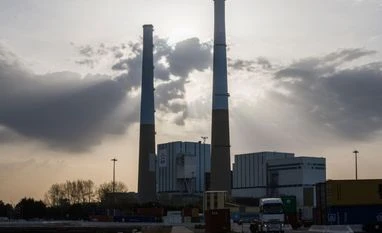The fourth edition of 'The Production Gap Report' released on Wednesday has revealed that annual oil and gas production is projected to increase by 27 per cent and 25 per cent by 2030 and by 29 percent and 41 per cent by 2050, respectively.
The report states that annual global coal production is projected to increase by 10 per cent between 2020 and 2030, with a near-term increase in production led by India, Indonesia, and Russia.
This comes despite 151 national governments having pledged to achieve net-zero emissions. In 2015, the countries signed the Paris Agreement and pledged to limit the average temperature rise to below 2 degrees, while actively aiming for 1.5 degrees above industrial levels. However, the latest forecasts suggest global coal, oil, and gas demand will peak this decade.
"Governments are planning on producing around 110 per cent more fossil fuels in 2030 than would be consistent with limiting warming to 1.5 degrees Celsius, and 69 per cent more than would be consistent with limiting warming to 2 degrees Celsius," the report mentions.
"The magnitude of the production gap is also projected to grow over time: by 2050, planned fossil fuel production is 350 per cent and 150 per cent above the levels consistent with limiting warming to 1.5 degree Celsius or 2 degree Celsius, respectively," the report adds.
'The Production Gap Report' brought out by Stockholm Environment Institute (SEI), Climate Analytics, E3G, International Institute for Sustainable Development (IISD) and the UN Environment Programme (UNEP) assesses governments' planned and projected production of coal, oil, and gas against global levels consistent with the Paris Agreement's temperature goal.
"The global Government Plans and Projections (GPP) pathways show that, compared with 2020 levels, annual oil and gas production is projected to increase by 27 per cent and 25 percent by 2030, and by 29 percent and 41 percent by 2050, respectively. Annual coal production is projected to increase by 10 per cent between 2020 and 2030, before falling by 41 per cent between 2030 and 2050," the report predicts.
More From This Section
India seeks self-reliance and views the coal industry as currently being of paramount importance for income and employment generation, the report mentions.
"India, Indonesia, and the Russian Federation all plan significant increases in coal production through 2030. The Russian Federation aims to boost coal production and exports to Asia-Pacific and Atlantic regions. India seeks self-reliance and views the coal industry as currently being of paramount importance for income and employment generation. Indonesia and Kazakhstan plan to continue producing coal with the aim of developing high-value-added coal-based products," the report said.
Reacting to the report, Inger Andersen, Executive Director of UNEP said that governments' plans to expand fossil fuel production are undermining the energy transition needed to achieve net-zero emissions, creating economic risks and throwing humanity's future into question.
"Powering economies with clean and efficient energy is the only way to end energy poverty and bring down emissions at the same time Starting at COP28, nations must unite behind a managed and equitable phase-out of coal, oil and gas to ease the turbulence ahead and benefit every person on this planet," she added.
)